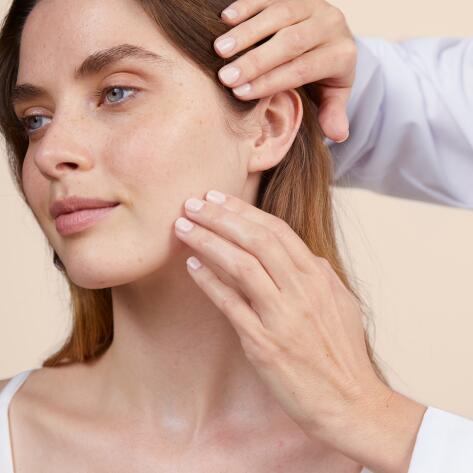How to help your skin heal
How wound healing works
When your skin is injured, a natural 3-step repair process automatically starts: scar healing.
It all starts with an "inflammatory" phase lasting 2 to 7 days, which allows your body to defend itself: during this phase, your skin will be red and warm. Next, your skin cells are activated to close the wound with new tissue (the "proliferation" stage). After about 15 days, your scar enters a phase of "epidermal remodelling" which can last up to 2 years!
If the damage is superficial, your skin can regenerate completely. For deeper wounds, a scar often remains. But you can still act to help your wound healing.
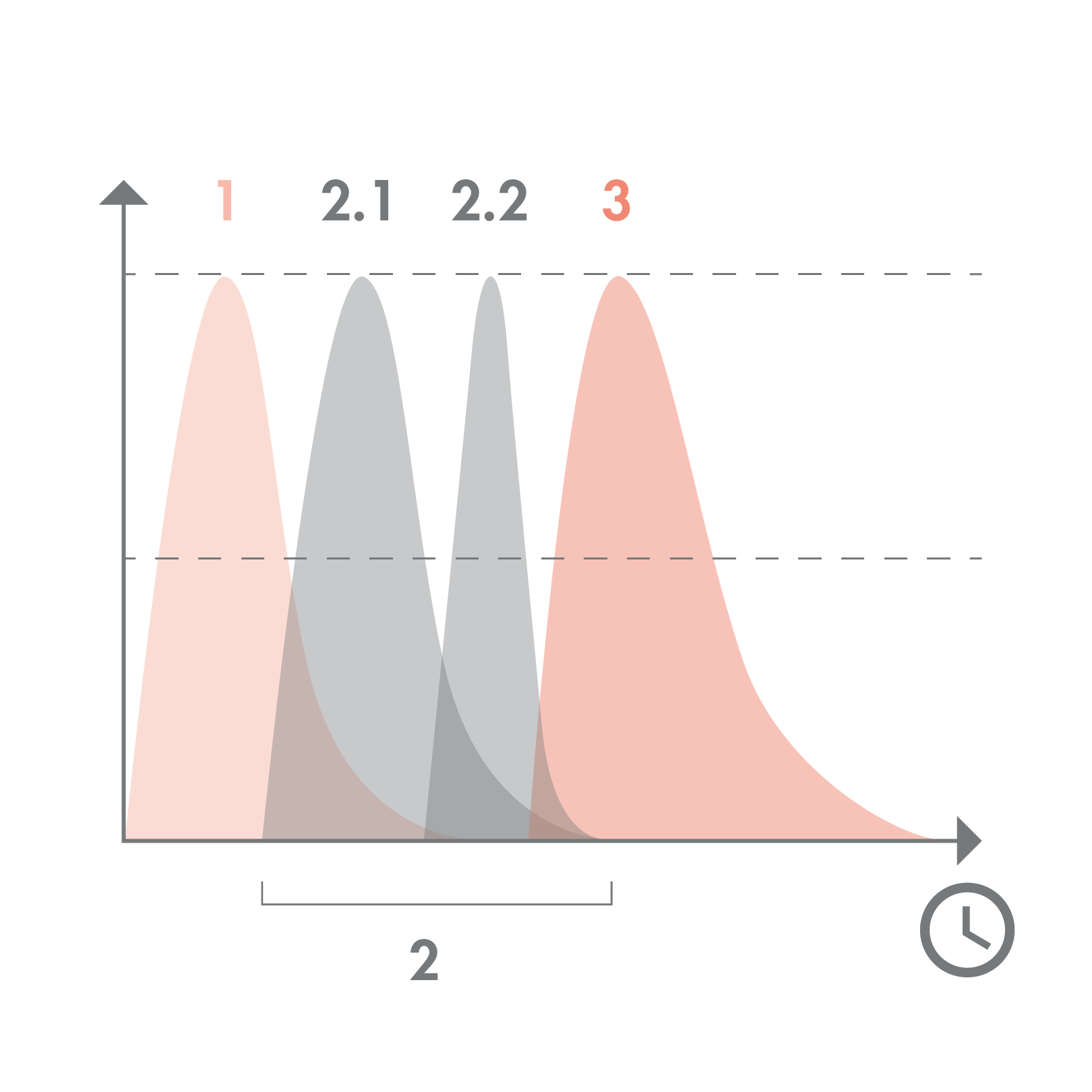
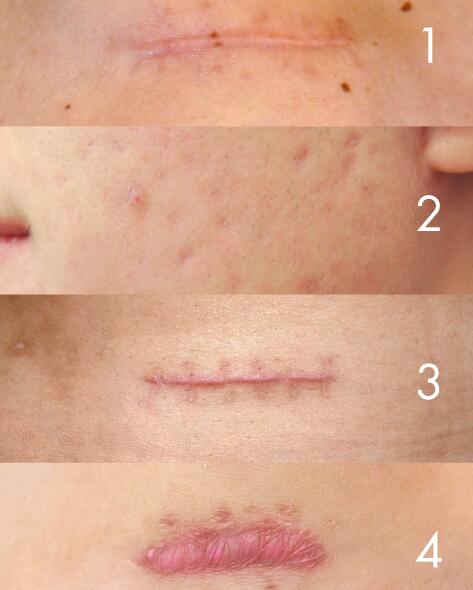
Recognise what type of scar you have to treat it better
There are all kinds of scars. Understanding the type of scar you have means that you can choose good habits and care for you.
FLAT OR WHITE - This is the most common type of scar. Smooth and discreet, they fade with time until sometimes they become almost invisible.
HYPERTROPHIC - Swollen and reddish at the site of the initial lesion, this type of scar may be itchy and painful. These scars can be managed with good habits.
CHELOID - Red, swollen, and often painful, this type of scar spreads around the original wound. These scars can be treated with medication and even surgery.
ATROPHIC - Left behind after severe acne or chicken pox, these small marks are often circular and slightly indented in the skin. The best solution for these scars is prevention.
"This scar is now part of me. I would have preferred to go without it, that's for sure! But, thanks to the care I’ve given it, it has reduced. I've made it my own and now I accept it."
38 years
The golden rule for good scar healing: act quickly
A hefty fall on a bike, a knife that slips in the kitchen, a wound that gets infected, a surgical operation... Our skin carries all the traces of our experiences.
While some scars only make a fleeting appearance, others last longer. Sometimes they can be heavy to bear. To prevent these marks from taking up too much space in your life, it’s essential to act quickly and to be very vigilant when it comes to your healing progress. The way you treat your wound has a lot to do with the quality of your scar.
Stop acne scars
We all have memories from adolescence that we'd rather forget. But when spots go away, sometimes scars remain, and so does our frustration. These scars are difficult to live with. The best way to avoid acne scars is to prevent them from appearing in the first place. Let's talk about it.
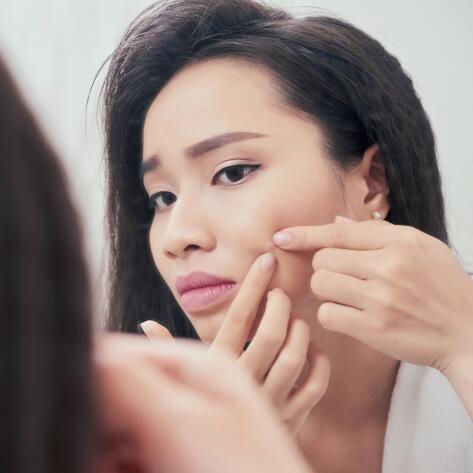
How to care for your post-surgery scar
The physical and psychological impact of a post-surgical scar shouldn’t be underestimated. What are the secrets to living well with your scar? Take care of your scar with tailored products, combined with regular massage.
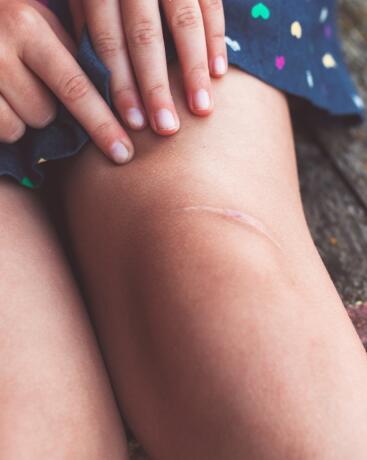
How to improve the appearance of your post-surgery scar
Tattoo scars: everything you need to know
So, you've taken the plunge and just got a tattoo! Did you know that your skin will go through different stages before it heals? It's essential to keep a close eye on the healing of your tattoo so you can enjoy a work of body art that lives up to your expectations. Need advice?
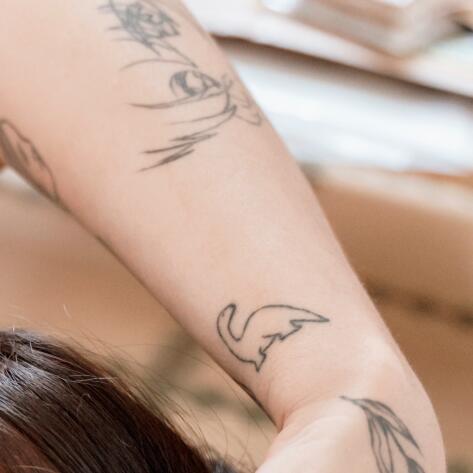
FRIENDLY, EXPERT ADVICE
Scars + sun make for a bad combination. So avoid it at all costs! If your scar isn’t covered by a bandage or your clothing, protect it with a very high protection sun care product.
All the good habits you need to protect yourself from the sun
The benefits of massage for your scar
Take it easy and relax. It's time for a massage! To improve the appearance of your scar, combine the use of suitable products with a little massage to reduce adhesions. Shall we get started?
Everything you need to know about massaging your scar properly
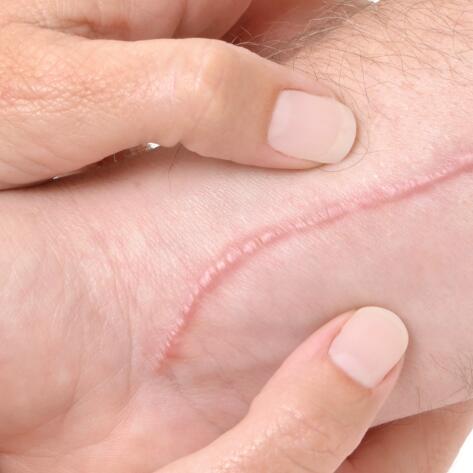
WE ANSWER YOUR QUESTIONS
We’re here to help you sort out fact from fiction.
The golden rule is to act quickly with appropriate care and actions. 3 steps for minor injuries.
1/ Clean your wound with water and a mild soap.
2/ Apply a healing cream at least twice a day to soothe, cleanse and repair your skin.
3/ Protect your skin from the sun with very high protection sun cream (SPF50+).
The latest on how to heal your scars properly
A simple injury that isn’t treated properly can quickly get worse. Be aware of signs of infection. Suspicious discharge, foul odour, persistent redness, swelling, feeling hot, increased pain... These are all signs that your healing is not going as it should. Don’t wait: consult a specialist quickly.
A scab is a sign of poor scar healing. As long as the scab is present, the skin cannot repair itself. To avoid this, you can apply a skin repair product.
As with many issues relating to your body and skin, the main solution is prevention. The best way to prevent acne scars is to treat your acne properly. If you've scratched a spot, you can also use a cream that will promote repair and limit the risk of marks.
How to avoid acne scars
Healing depends on the type, severity and location of the wound. Some areas of the body heal less well than others (chest, sternum, back and joints). But many other factors come into play: your general state of health, diet, whether or not you smoke, your age, your skin type, etc.
The latest on how to heal your scars properly
OUR SOLUTIONS TO REPAIR YOUR SKIN
The essentials for repairing, soothing and purifying sensitive, irritated skin for the whole family.
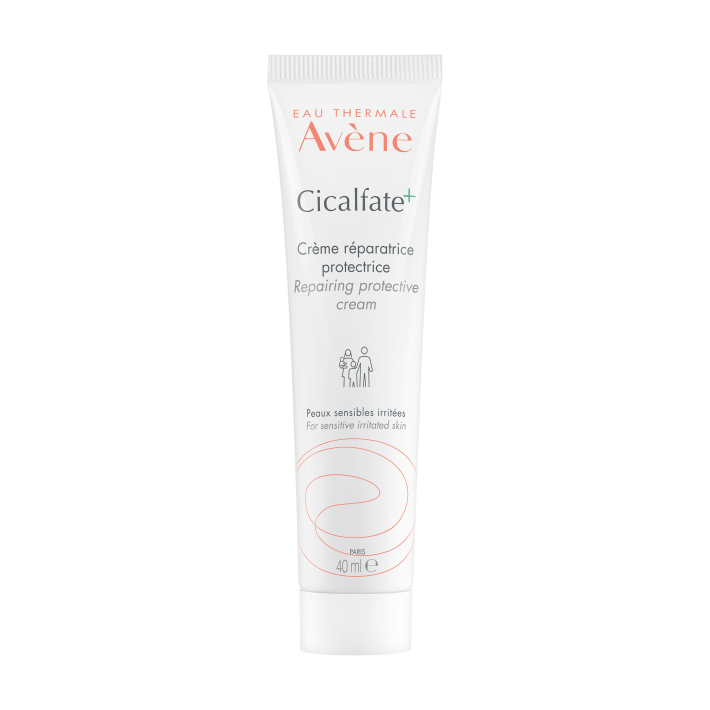
Cicalfate+ Repairing Protective Cream
A super effective cream for all kinds of skin problems: from dryness and redness to skin rashes, this is THE cream to have in your cabinet
MORE: DAILY IRRITATION
We’re all exposed to all kinds of external aggressors that can irritate our skin, even in the most intimate areas. Does it itch, sting or burn? We tell you everything you need to know to soothe your rash and take care of your sensitive skin.NEWSLETTER
We're always here for your skin!
All our tips on how to take care of your skin every day.

Which skin care routine should you adopt?
Identify what it really needs with the help of our experts and discover the most suitable skin care routine for you.

